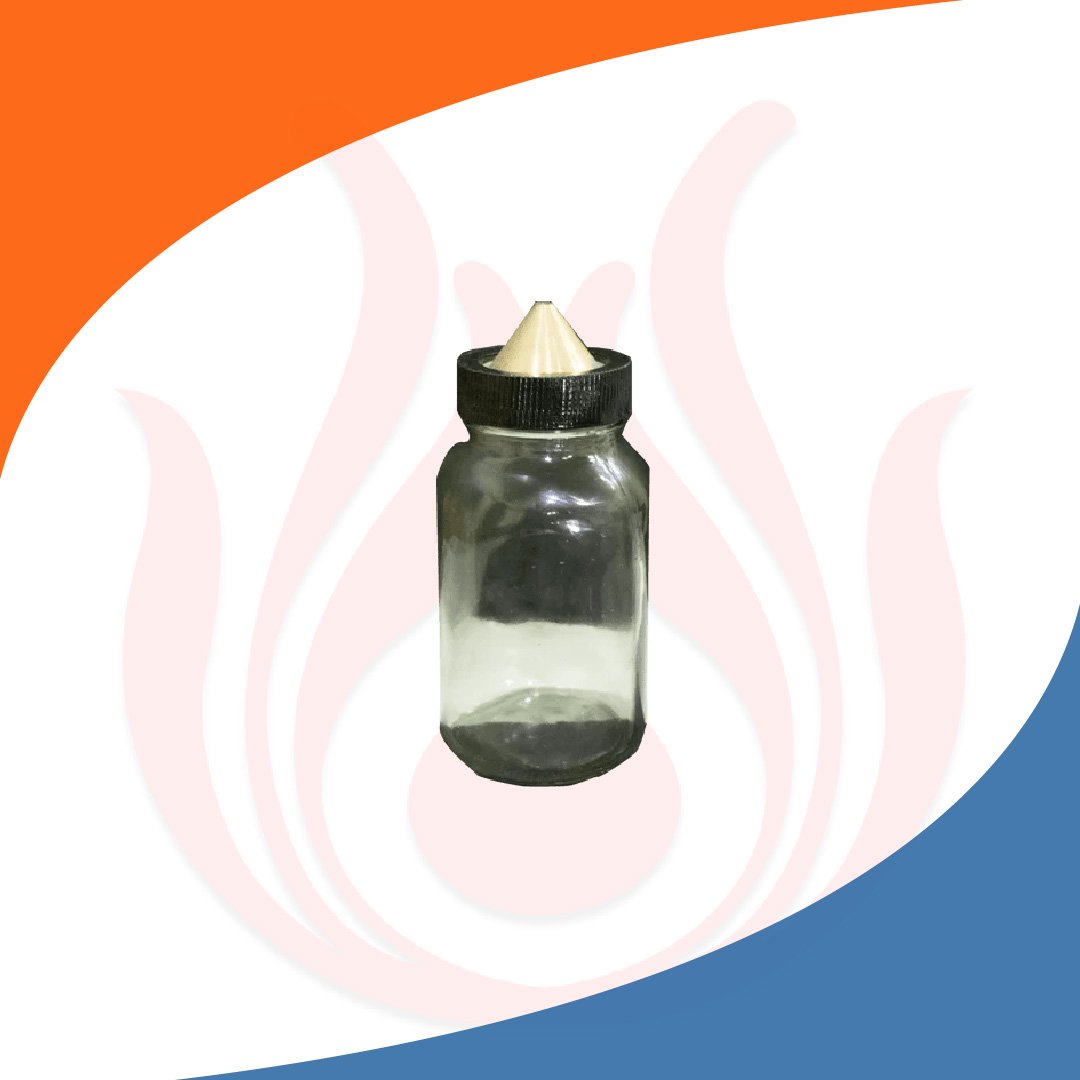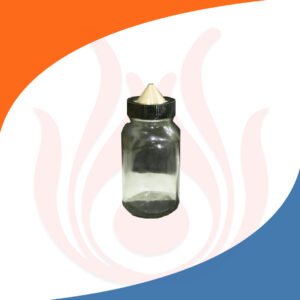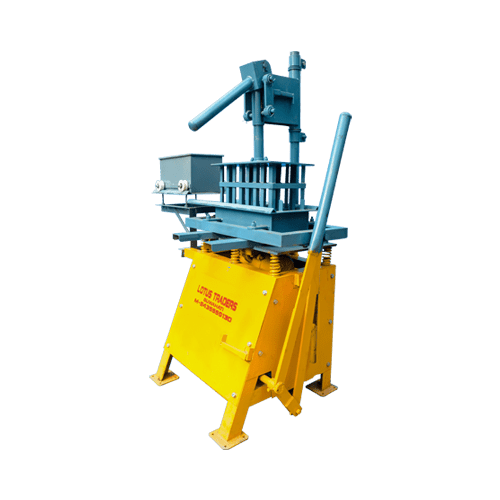Pycnometer
- High Quality Materials
- Compliance With Standards
- Clear Product Information
- Warranty & Support
- Product Testing & Certification
- Delivery & Policy
- Ask a Question
- Estimated Delivery: 5 Days – 10 Days
Information About Pycnometer:
Pycnometer
INTRODUCTION
The Pycnometer is an apparatus used in the laboratory for determining the density of liquids or solids. This instrument is based on Archimedes’ principle of buoyancy for which the displacement of a known volume of fluid reflects that sample volume. It is a Pycnometer that comprises precision glass container and capillary stopper for the accurate determination of substance mass and volume to calculate density.
The Pycnometers are widely used across the pharmaceutical and material science industries in quality control as well as research applications. The method includes measurement of the substance mass placed in Pycnometer, volume readout by displaced liquid. The Pycnometer is an important tool for scientists and researchers that require precise density measurements in different areas of study due to its accuracy among other things.
KEY FEATURES
Principle: The pycnometer works according to the Archimedes’ principle, whereby volume is determined as a displacement by an immersed solid sample.
Material: The pycnometer is typically manufactured from either glass or metal and so it can withstand the particular nature of substances being measured.
Sample Loading: However, the sample is carefully placed into the pycnometer to prevent any air bubbles and irregularities that may influence measurements.
Calibration: Highly accurate calibration is essential, often determined by measuring the pycnometer’s volume using a reference liquid with known density.
Water Bath: Some pycnometers are immersed in a water bath to allow for constant temperature measurements, which allows consistency.
Readings: Volume readings are carried out with the sample in pycnometer and then without (void volume) to calculate measured value of a sample.
Density Calculation: The sample density is determined from the values of measured volumes and a known liquid reference.
Accuracy: Pycnometers provide excellent accuracy in density measurements for solid materials that are of irregular shape.
Applications: This is very frequently used in many industries such as pharmaceuticals, chemistry and material science for the exact measure of densities.
UNDERSTANDING THE WORKING PROCEDURE
A pycnometer measures the density of liquids. It works through filling the pycnometer with a liquid of interest, measuring the mass that is now occupied by this filled pycnometer. At first, the pycnometer is weighed in an empty state and then it contains a liquid sample. Once full, the excess liquid is gently removed so that the pycnometer has been filled completely.
Weigh the pycnometer containing liquid. The density of the liquid, derived from a comparison between mass differences before and after filling in conjunction with known pycnometer volume using our equation: density =mass/volume. This technique is specifically relevant for liquids whose densities are unidentified or fluctuate, making it possible to determine the actual amount of liquid by taking into consideration factors such as temperature and pressure.
USAGE AND APPLICATION
The Pycnometer is laboratory equipment for determining the density of liquids. It is made up of a small, closed bottle with the capacity that can be measured. For its use, the bottle is filled with a liquid whose density will be determined and surplus of this solution hence should be wiped away. The mass of filled bottle is determined and the density calculated using known volume.
Applications that are widespread include the quality control elements in industries such as pharmaceuticals and petrochemical where exact specifications of liquid density play a critical role in maintaining uniformity. Moreover, it is also used in research and teaching environment for numerous scientific experiments. The Pycnometer’s features of accuracy significantly contribute to the use in matter testing, ensuring dependable results within geology and chemistry.
ADVANTAGE AND BENEFIT
Liquid density determination with high accuracy is provided by the pycnometer. Its strength is in its accuracy, it measures the volume with high precision making possible reliable density data. This device is particularly useful in pharmaceutical and petrochemicals industry where it helps to determine the precision characterization of substances. This versatility makes the pycnometer useful not only for a specific type of liquid but also for different liquids.
Second, it supports quality control measures that are essential for the manufacturing process. The method is somewhat straightforward, which means that it can be used for routine density measurements creating practicality in labs settings. In general, the accuracy and diversity of this pycnometer makes it a useful instrument in industries that need more pinpoint density data.
CONCLUSION
The pycnometer – a device used to determine the density of materials, provides interesting insights in different sectors. Through the Archimedes principle, it is able to accurately calculate a substance’s volume and mass which allows for exact density calculations. This approach is most effective in quality control, research and material characterization. Simplicity combined with accuracy makes the pycnometer preferred for determination of density.
Nevertheless, strict handling and calibration protocols must be followed to ensure accuracy. To conclude, the pycnometer is a reliable device that contributes to advances in different areas from metallurgy to pharmacology where precise information on density serves as key.
The pycnometer is filled with the substance, and the mass and volume are measured to calculate density using the formula: Density = Mass/Volume.
A pycnometer is a small container whose volume can be accurately measured in order to find out density of material.
Pycnometers play an essential role in different industries including chemistry as well as material science when determining the density of liquids and solids.
Pycnometers are used mainly for solids and liquids rather than gases. Different instruments are used to measure gas density.
This is due to factors such as proper cleaning and drying of the pycnometer, accurate measurements for mass and volume measured together with temperature control.
Yes, other approaches include hydrometers and electronic densitometers but psychometry is still accepted as an accurate approach.
- DESCRIPTION
| Size | 1 kg Jar |
| Accessories | Locking ring and rubber seal |
| Material used | Glass |















